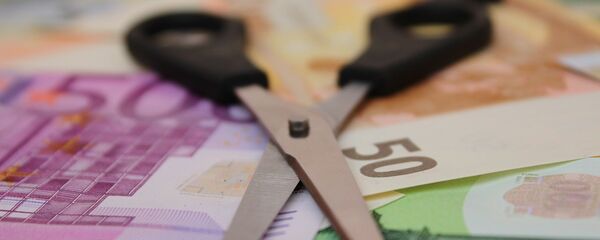According to the European Network on Debt and Development, there is a strong political commitment to continue so-called 'tax competition' between governments trying to attract multinational corporations with lucrative tax reduction opportunities – also known as the 'race to the bottom on corporate taxation'.
Germany 2nd only to Luxembourg in money laundering risk, says report. https://t.co/zomBf5Y7Rc #luxleaks #taxdodging pic.twitter.com/FkYFyTcw18
— James Crisp (@JamesCrisp6) November 3, 2015
The result is an EU tax system that still allows a wide range of options for tax dodging by multinational corporations.
#McDonalds figures featured in new report show reality of MNCs' tax dodging: https://t.co/AiGOiWdRRG #LuxLeaks pic.twitter.com/d8koiOaAcI
— Eurodad (@eurodad) November 3, 2015
The report says: "A number of EU countries, including in particular Luxembourg and Germany, still offer a diverse menu of options for concealing ownership and laundering money”.
"Among the 15 countries covered in this report, Spain remains by far the most aggressive tax treaty negotiator, and has managed to lower developing country tax rates by an average 5.4 percentage points through its tax treaties with developing countries," the report said.
"The UK and France played the leading role in blocking developing countries' demand for a seat at the table when global tax standards and rules are being decided."
LuxLeaks and Inaction
In 2014, the International Consortium of Investigative Journalists released a series of documents exposing Pepsi, IKEA, AIG, Coach, Deutsche Bank, Abbott Laboratories and nearly 340 other companies which had secured secret deals from Luxembourg that allowed many of them to slash their global tax bills.
10%: share of financial wealth held offshore in Europe corresponding to almost €2 trillion: https://t.co/AiGOiWdRRG pic.twitter.com/H72wGvqTV5
— Eurodad (@eurodad) November 3, 2015
Companies have channeled hundreds of billions of dollars through Luxembourg and saved billions of dollars in taxes. Some firms have enjoyed effective tax rates of less than 1 percent on the profits they’ve shuffled into Luxembourg.
Many of the tax deals exploited international tax mismatches that allowed companies to avoid taxes both in Luxembourg and elsewhere through the use of so-called hybrid loans.
1 yr after #LuxLeaks, complex & broken #EU system of corporate tax rulings, letterbox companies + loopholes remains: https://t.co/AiGOiWdRRG
— Eurodad (@eurodad) November 3, 2015
In October 2015, the European Commission ruled that Luxembourg and the Netherlands have granted selective tax advantages to Fiat Finance and Trade and Starbucks, respectively. These are illegal under EU state aid rules.
The Commission found that Luxembourg has granted selective tax advantages to Fiat's financing company and the Netherlands to Starbucks' coffee roasting company. In each case, a tax ruling issued by the respective national tax authority artificially lowered the tax paid by the company.
One year on from LuxLeaks, the report found: "Although tweaks have been made and some loopholes have been closed, the complex and dysfunctional EU system of corporate tax rulings, treaties, letterbox companies and special corporate tax regimes still remains in place".
"On some matters, such as the controversial patent boxes [a tax incentive that reduces tax on profits attributable to patents], the damaging policies seem to be spreading in Europe. Defenae mechanisms against 'harmful tax practices' that have been introduced by governments, only seem partially effective," the report said.



